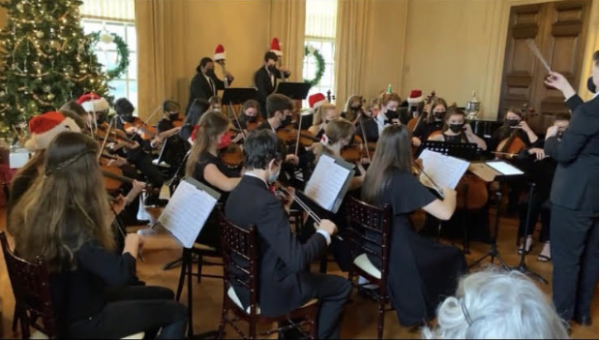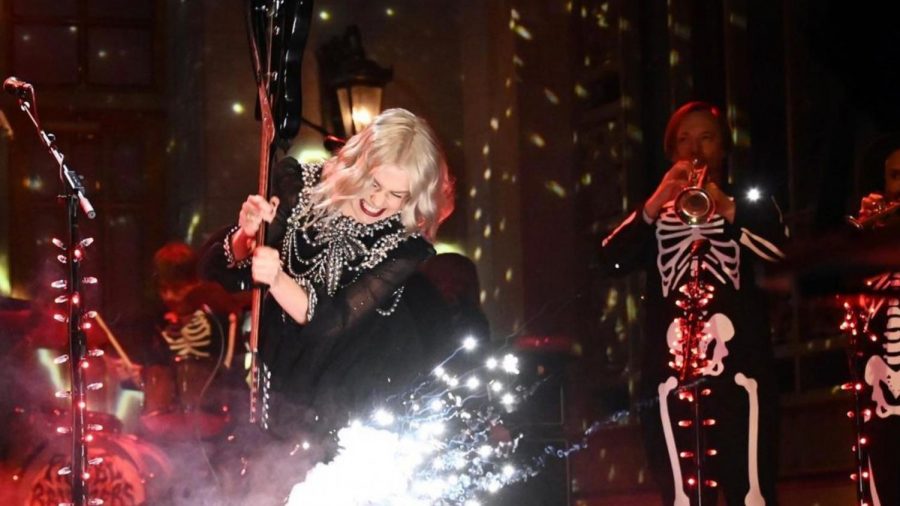
We all share one commonality, which is music. Whether you believe it or not, music is a part of all our lives. Music finds a way to wedge its way into each and every single day. Typically, students will get into their cars in the morning on the way to school just to connect their phones to bluetooth and listen to music. The second they get to school most kids will put airpods just to walk through the halls. Then, as they get home for the day, most will play music in their rooms, and almost all of them will listen to music while working out. Why is that?
Being taught music in school all the way from kindergarten to senior year is so valuable. Here at Ipswich we are so fortunate to have a great music program, but some neighboring towns are less fortunate. Students have the opportunity to be involved in music all thirteen years. When asked why, Mr. Coelho thinks music education is so beneficial, he answers, “If you are thinking about a holistic education, it’s more that if you don’t have music education, then you don’t have a whole education. In that sense, we’re empty and left not understanding the creative sides of us. I think that it contributes over all to the idea that being exposed to an artistic medium is so valuable for humanity,” says Coelho.
It is widely known that music helps students to focus throughout the world. If you implement a block of the school day to music then administration will start to see an increase of focus among the student body. According to an article from the National University, “Music activates both the left and right brain at the same time, and the activation of both hemispheres can maximize learning and improve memory,” Dr. Masha Godkin informs us. The act of playing an instrument also can help a student to grow and can use those lessons learned in other aspects of their life. According to an article from Frontiers in Psychology it states, “Orchestral music education may function as a fertile context in which to promote growth mindset.”
Orchestra creates a sense of community among classmates, no matter what grade you are in. Students of all four grades work together to create a common goal and purpose. Coelho stated,“That’s the magic! It’s all of us focusing our collective brain energy on one singular thing that we are doing.” A freshman could be stand partners with a senior or a senior sitting with a senior. It’s the mixture you get that creates the sense of community. Behnji Dessorces, Orchestra President, said: “Creates an environment of enhanced collaboration and positive harmonious interactions that, as a whole, pushes you to succeed and not only become a better musician, but a better person as well.”
Having a music class be part of the curriculum can deeply improve students’ moods at school. ”If it wasn’t for orchestra I simply don’t know how I’d manage all the things I’ve done. Granted there has been some stress created from band and orchestra but it also reduces my stress levels and anxiety.” Behnji adds. Just like any class, orchestra will push you to be the best you can, but sooner or later music will give back. When asking Coelho if he thinks a music class helps improve students moods during the school day, he responds, “ I absolutely do. I was really cranky until I would have orchestra, and it would improve my day. I hope, I really do hope that students can leave feeling better than they did entering class, and I do think that happens for the most part.”
More schools should add music education to their curriculum, as it can do wonders across the student body. Students should also be allowed to listen to music while doing work, if it doesn’t interfere with the class. The administration will start to see improvements in students, moods, focus levels, brain development and social skills!


